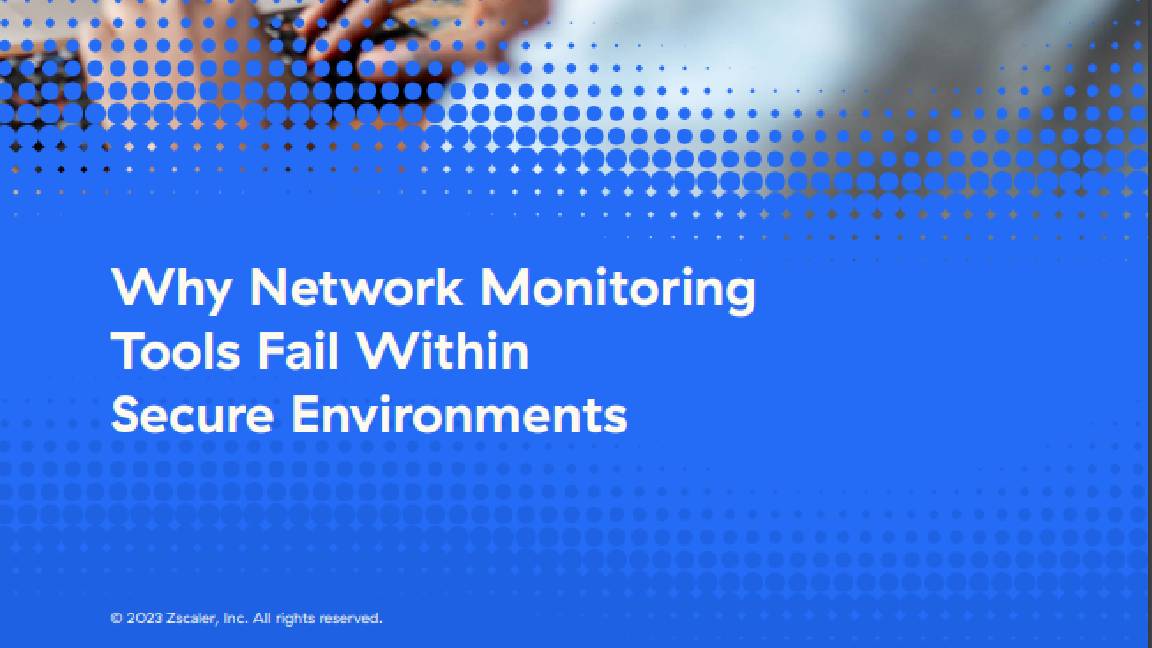What is Network Intelligence?
A look at the technology enabling businesses to analyse data packets in real-time


Network Intelligence (NI) encompasses the data, technology, algorithms, and techniques used to collect, analyse and visualise network information in a connected business. NI represents the capacity of the network to combine active and passive techniques to monitor the links between cloud apps and service performance, drawing together processes from packet capture, deep packet inspection (DPI) and business intelligence.
It is primarily used to examine IP data packets going through a network in real-time, giving visibility of user demand in order to manage usage, as well as enable a business to use more sophisticated audience measurement, behavioural analysis, customer segmentation and personalisation tools.
NI aims to optimise digital experiences everywhere, by understanding global network topologies, dependencies and behaviour, and to aid improved IT decision making.
Network Intelligence is different to traditional network monitoring, which was built for pre-cloud, internally-owned and controlled networks and services. The key is being able to extend this into internet and cloud services, which is where network intelligence comes in.
How is Network Intelligence used?
Network Intelligence can be used wherever there are applications or services being provided over a network, such as cloud computing, communications, traffic shaping and more.
NI is particularly useful when it comes to cloud migration projects, where service performance challenges can arise more frequently both internally and externally. Being able to establish whether the network issue is due to problems inside the business or from the external cloud provider is key to being able to take swift action on the root cause of underwhelming cloud performance.
It can also be used to get information like page load and web transaction timing performance, and links it together with network performance metrics. Most NI providers will have a comprehensive dashboard for operations teams to be able to pinpoint service problems.
Sign up today and you will receive a free copy of our Future Focus 2025 report - the leading guidance on AI, cybersecurity and other IT challenges as per 700+ senior executives
Businesses that implement NI are ensuring they are ready for enhancements such as WAN optimisation, Network Performance Management and other next-generation techniques that rely on network visibility. For companies which rely on having the best customer experience, for example mobile network providers, NI is increasingly being used to offer a deeper understanding of audience measurement, customer segmentation, personalisation, and how customers are using a particular service.
Network Intelligence for security
Network Intelligence can also play a key role in an organisation's security by recording information about who is accessing a network, where they're accessing it from and how. When this information is captured in real-time, it helps IT departments and security teams understand what is happening and take appropriate measures either to stop the attack or reduce the damage.
As businesses increasingly move applications and services into the cloud, there is a need to have robust authentication and authorisation procedures in place. Having a way to monitor baseline measurements of network performance around the authentication process will mean IT departments are able to set proper expectations for latency and paths, and find service providers for both network and applications who can deliver the best results.
Cloud vendors can also use NI to prevent data leaks or attempts to steal data with an overview of all transactions across a network, providing a solid audit trail. This also helps both vendors and clients remain compliant with regulations.
With enterprises increasingly making use of hybrid multi-cloud environments, NI tools which can monitor end-to-end application performance and give visibility into network infrastructure across multiple layers and domains will be increasingly valuable.
Esther is a freelance media analyst, podcaster, and one-third of Media Voices. She has previously worked as a content marketing lead for Dennis Publishing and the Media Briefing. She writes frequently on topics such as subscriptions and tech developments for industry sites such as Digital Content Next and What’s New in Publishing. She is co-founder of the Publisher Podcast Awards and Publisher Podcast Summit; the first conference and awards dedicated to celebrating and elevating publisher podcasts.
-
 What is Microsoft Maia?
What is Microsoft Maia?Explainer Microsoft's in-house chip is planned to a core aspect of Microsoft Copilot and future Azure AI offerings
-
 If Satya Nadella wants us to take AI seriously, let’s forget about mass adoption and start with a return on investment for those already using it
If Satya Nadella wants us to take AI seriously, let’s forget about mass adoption and start with a return on investment for those already using itOpinion If Satya Nadella wants us to take AI seriously, let's start with ROI for businesses
-
 Russian hackers are using an old Cisco flaw to target network devices – here’s how you can stay safe
Russian hackers are using an old Cisco flaw to target network devices – here’s how you can stay safeNews With the aim of carrying out espionage, Russia's Center 16 is targeting infrastructure organizations around the world
-
 HPE eyes enterprise data sovereignty gains with Aruba Networking Central expansion
HPE eyes enterprise data sovereignty gains with Aruba Networking Central expansionNews HPE has announced a sweeping expansion of its Aruba Networking Central platform, offering users a raft of new features focused on driving security and data sovereignty.
-
 Fortify your future: How HPE ProLiant Servers deliver top-tier cyber security, management, and performance
Fortify your future: How HPE ProLiant Servers deliver top-tier cyber security, management, and performanceWhitepaper Deploy servers with a secure approach
-
 Fortify your future with HPE ProLiant Servers powered by Intel
Fortify your future with HPE ProLiant Servers powered by IntelWhitepaper Enhance your security and manage your servers more effectively
-
 Architecting enterprise networks for the next decade
Architecting enterprise networks for the next decadeWhitepaper A new paradigm in network architecture
-
 Why network monitoring tools fail within secure environments
Why network monitoring tools fail within secure environmentsWhitepaper Gain visibility into devices, networks, and applications
-
 Better together: HPE Aruba Networking CX switches and HPE Aruba Networking Central
Better together: HPE Aruba Networking CX switches and HPE Aruba Networking CentralWhitepaper Explore the power and simplicity of managing HPE Aruba Networking CX Switches with HPE Aruba Networking Central
-
 Cyber-resilient infrastructure starts with server security
Cyber-resilient infrastructure starts with server securitywhitepaper Take a security-focused approach when investing in the next wave of IT infrastructure.
